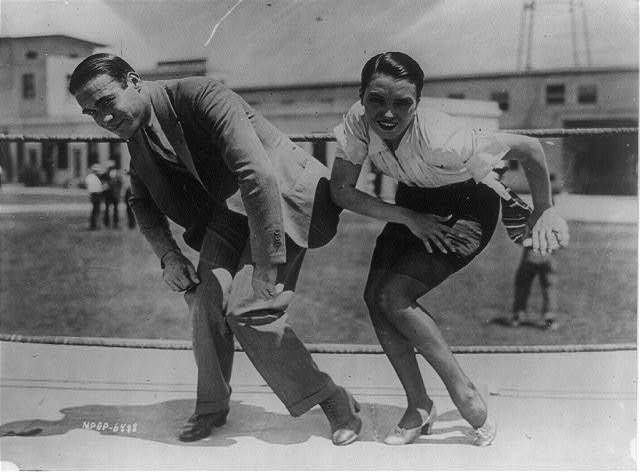The Danes have never shied away from the dancefloor. Fogtdal’s Illustrated Times, an album of early 20th century Danish nostalgia, reported that dancing was a soberly popular pastime in the country before the onset of World War I, with bourgeois waltz-lanciers and the less-refined mayhem known as polka.
But a veritable craze for dancing swept the country in the 1920s, when the spirit of liberation took hold in Europe’s cafés, among returning soldiers and others ready to break out and live a little after the privations and miseries of the war years. The spirit of Americanism sent shockwave after shockwave through the European population.
Europe’s new dances of the 1920s were unabashedly sensual. Arms were draped around partners, who clung shamelessly to each other – especially in the Argentinian tango, which Danish audiences watched enraptured as screen idol Rudolph Valentino danced with Latin gusto.
Jazz music – later to become a hugely popular musical style in the capital city – arrived during the same period on gramophone records. Unlike the tango, jazz found a fast following among cramped apartment-dwellers who didn’t need much space to get in on the act. Illustrated Times reported that a few square-metres on a floor in a two-room cold-water flat was enough to become a raging jazz fan during the era.
Check your Charleston
Revue theatre – this country’s answer to vaudeville, which still enjoys a healthy audience today – was the prime venue for dance trends in the country. During the 1920s, the major trends in dancing attracted a rabid audience among teenagers and young people, who copied every step and style, from the flapping movements of the Turkey trot to the challenging foxtrot, the hip-shaking shimmy, and the Charleston, the heel-kick social dance that swept the country in 1926-1927 and would become emblematic of the era as a whole.
Before long, the whole country was dancing, and music was no longer an adequate accompaniment to fine dining. Even the city’s toniest restaurants had to install dancefloors for the enjoyment of all ages – middle-aged folk of the era who couldn’t keep up with the younger set contented themselves with the easier ‘one-step’ dance.
But the new spirit of anything-goes riled the moral straight-arrows of the age. Thor Bøgelund in the Illustrated Times declared in 1921 that the first wave of the Shimmy craze, which swept the country that year, was “virtue run amok”.
Before long, the local authorities were being called in to preserve public decency. Politicians couldn’t outlaw the new dancing, but they tried their utmost to set boundaries of decency. In Copenhagen’s nicer restaurants and so-called ‘dance cafés’–not to mention the shadier bars where no-one had danced before – the management were forced to prohibit the promiscuous practice guests from asking a woman at another table to dance (women didn’t ask anyone to dance).
Dancing debacle
The police of the era would have preferred to turn a blind eye to ‘dancing between tables’, but a ban was a ban, Illustrated Times noted, and the case ended in the halls of the Copenhagen City Hall, where an ordinance on dancing was debated during the decade. The municipality concluded that ‘suitable’ restaurants could be eligible to receive ‘dance licences’ and thereby uplift the ban on invitations to dance.
In practice, the Copenhagen attitude toward dancing during the era was overwhelmingly liberal, and the atmosphere of the city almost exhilarated. It was no secret that Copenhagen’s conservative governor (a predecessor of mayor, which was not introduced until 1938) of the era, Ernst Kaper, then over 50 years old, loved to dance; he was seconded by party crony Pastor Alfred Bindslev, who avowed his love for dancing but was shy about doing it in public.
A satirical cartoon circulated around Aarhus after a citywide repeal of the dance ban poked fun at Police Chief Kjørboe, sitting at a smoky table amongst the city’s raging youngsters. “Dance, dance Charleston, cheek to cheek and hand in hand,” noted the caption-write, jubilant as anyone that the good times were here to stay.















